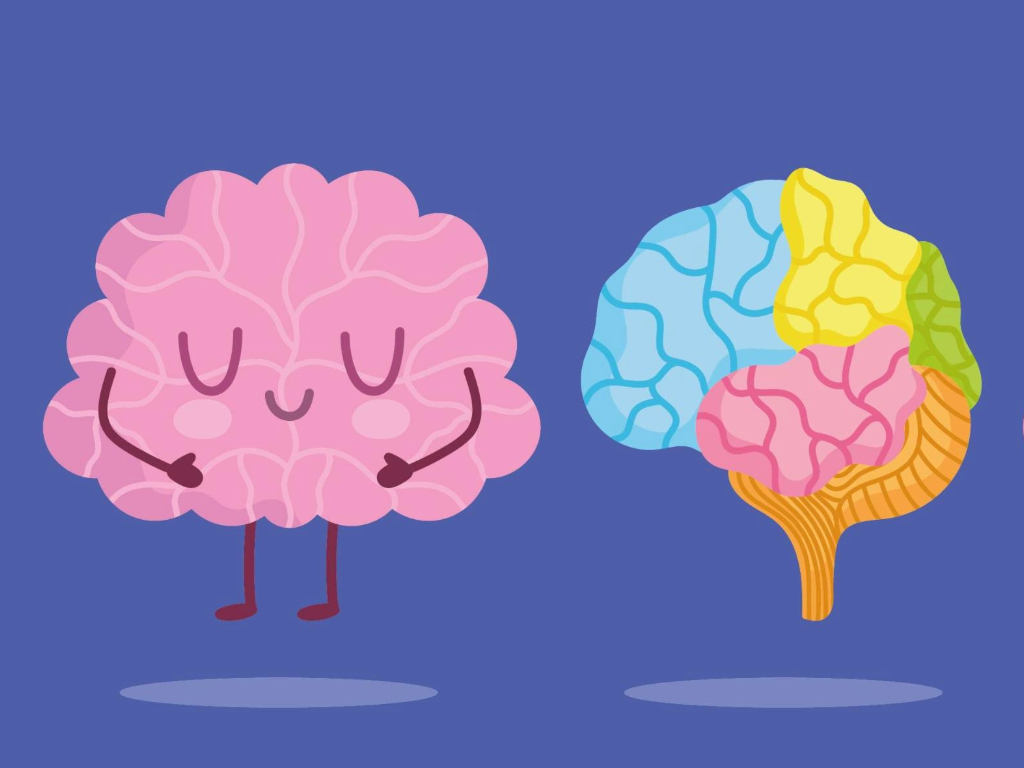AI in Medical Trials is a Game Changer
The groundbreaking clinical trial that brought hope to millions worldwide centers on the development and success of Sofosbuvir, a revolutionary treatment for hepatitis C virus (HCV). Hepatitis C is a formidable viral infection that can lead to severe liver damage and is a major health concern affecting millions globally. Prior to the advent of Sofosbuvir, treatments for this disease were not only costly but also fraught with harsh side effects, making them inaccessible to a significant portion of those afflicted.
In the pivotal year of 2011, the pharmaceutical giant Gilead Sciences embarked on a clinical trial for Sofosbuvir, aiming to transform the landscape of hepatitis C treatment. The results of this trial were nothing short of remarkable. Achieving a cure rate exceeding 90%, Sofosbuvir offered a beacon of hope to those suffering from hepatitis C. Its efficacy was coupled with a much more tolerable side effect profile compared to previous therapies, marking a major advancement in patient care. By 2013, the U.S. Food and Drug Administration (FDA) gave its approval to Sofosbuvir, setting a new standard of care for hepatitis C treatment. This approval was a critical milestone that led to the widespread adoption of Sofosbuvir in clinical settings across the globe. The introduction of this drug has been instrumental in saving countless lives and substantially diminishing the worldwide impact of hepatitis C.
Moreover, the success of Sofosbuvir underscores the broader potential of artificial intelligence (AI) in reshaping medical research. Traditionally, medical trials have been painstakingly slow and labor-intensive, with data collection and analysis performed manually. However, AI stands at the threshold of a new era in medical research, promising to accelerate the pace of trials, enhance the efficiency of data handling, and improve the accuracy of outcomes. This integration of AI into medical trials could revolutionize the approach to disease treatment and patient care, heralding a future where medical breakthroughs occur at an unprecedented speed and scale.

Machine Learning Algorithms
Artificial intelligence, particularly through the application of machine learning algorithms, is revolutionizing the field of medical trials, injecting new vigor and capability into what was once a slow and cumbersome process. These advanced algorithms harness the power of AI to sift through vast datasets swiftly and efficiently, a task that would typically take a human researcher an inordinate amount of time to complete. The advantage of using machine learning lies not just in its speed but in its profound ability to detect intricate patterns and subtle trends that might escape human observation. By deploying these algorithms, researchers can delve deep into the data, uncovering valuable insights that might otherwise remain obscured. This capability significantly enhances the analytical phase of medical trials.
Researchers are equipped to observe correlations and causations that inform more robust hypotheses and trial designs. Consequently, this can expedite the overall process of data analysis, streamlining the development of trials and enabling quicker transitions from the conceptual phase to actionable insights. This acceleration and enrichment of data analysis not only refine the existing methodologies but also allow medical professionals to make quicker, more informed decisions regarding the direction and adjustments of ongoing trials. By improving the speed and accuracy of these decisions, AI-powered tools are setting the stage for more dynamic and responsive research environments, potentially reducing the time it takes to bring new treatments from the lab bench to bedside. Such advancements underscore the transformative impact of AI in medical research, promising a future where medical solutions are delivered with unprecedented precision and speed.
Virtual Assistants
Artificial intelligence is also transforming medical trials through the innovative use of virtual assistants. These AI-driven tools play a crucial role in modernizing several aspects of the trial process, making it more streamlined and efficient. One of the key functions of these virtual assistants is to assist researchers in identifying and recruiting eligible participants. By automating the screening and selection process, these intelligent systems can quickly analyze vast amounts of participant data to determine eligibility based on predefined criteria, significantly speeding up what was traditionally a time-intensive part of trial setup. Moreover, virtual assistants enhance the logistical aspects of conducting a trial. They are programmed to handle appointment scheduling, ensuring that participant visits are organized efficiently and without scheduling conflicts. This automation relieves researchers of the routine administrative burden, allowing them to focus more on the critical scientific inquiries at the heart of the trial.
In addition to participant management, these AI assistants are invaluable in the real-time collection and management of trial data. They can interface directly with electronic health records and other data sources, pulling in necessary information as it becomes available. This capability ensures that data collection is not only faster but also more accurate, reducing the likelihood of errors that can occur with manual data handling. By integrating these functions, virtual assistants in AI are making medical trials more manageable and less cumbersome. This not only improves the efficiency of data gathering and participant management but also enhances the overall efficacy and speed of research studies. Such advancements in AI applications are paving the way for a new era in medical research, where technology and human expertise combine to foster quicker advancements in medical science.
Accuracy with AI in Medical Trials
One of the most promising applications of AI in this field is the use of sophisticated algorithms to predict the efficacy of treatment options for individual patients. This predictive capability represents a significant shift towards personalized medicine, where treatments can be customized to fit the unique genetic makeup and health profile of each patient. These AI algorithms analyze a multitude of variables including genetic information, past medical history, and even lifestyle choices to assess how a patient might respond to different treatments. By integrating complex datasets and applying advanced machine learning techniques, AI can uncover patterns and insights that are beyond the scope of traditional analysis methods. This not only aids in identifying the most promising treatment options but also in avoiding those that are likely to be ineffective or cause adverse reactions.
The ability to predict treatment outcomes with greater accuracy is a pivotal advancement for medical trials. It allows researchers to fine-tune treatment plans to maximize efficacy and minimize potential risks, thereby enhancing the overall success rate of the trials. Furthermore, this approach ensures that resources are used more efficiently, focusing efforts on interventions that are most likely to yield positive results. Overall, the integration of AI in predicting treatment outcomes not only improves the accuracy and reliability of medical trials but also represents a transformative step towards more personalized and effective healthcare solutions. This targeted approach promises to enhance patient outcomes, reduce treatment-related complications, and ultimately, lead to more successful clinical trials.
Medical trials are an important part of the process of bringing new treatments and therapies to market, but they are not without their challenges. Here are four of the biggest challenges that researchers face when conducting medical trials:
- Recruitment. One of the biggest challenges in medical trials is finding enough eligible participants to participate in the trial. This can be especially difficult for rare diseases, where the pool of potential participants is smaller.
- Retention. Another challenge in medical trials is retaining participants throughout the trial. Participants may drop out for a variety of reasons, including side effects, inconvenience, or loss of interest.
- Data collection. Collecting and analyzing data is a critical part of medical trials. But, it can also be one of the most time-consuming and labor-intensive tasks. Researchers may need to collect data from a variety of sources, including patient records questionnaires, and lab tests. The data collected is analyzed to identify trends and patterns.
- Funding. Conducting a medical trial can be an expensive endeavor, and securing funding can be a major challenge.
Data Collection With AI in Medical Trials
AI has the potential to revolutionize the way we conduct medical trials, streamlining the process and improving efficiency and accuracy. By leveraging the power of AI, we can bring new treatments to market faster and more effectively, ultimately improving the lives of patients around the world.
Dr. Sarah Smith, Director of Clinical Trials at Johns Hopkins University
There are many different types of data collection points at a hospital, and the specific types of data collected can vary depending on the needs and goals of the hospital. Some common types of data collection points at a hospital include elehttps://uxminify.com
ctronic health records, patient questionnaires, lab results, and vital sign monitors.
- Electronic health records (EHRs). Digital versions of a patient’s medical history are used to track a patient’s medical information over time. EHRs can include a wide range of information, including patient demographics, medical history, diagnoses, treatments, and test results. EHRs are accessed by a patient’s healthcare team, and they can be a valuable tool for coordinating care and monitoring a patient’s health.
- Patient questionnaires. Another common type of data collection point is at a hospital. These are used to collect information about a patient’s medical history, symptoms, and other relevant information. Patient questionnaires can be administered in person or online, and they can be used to help healthcare providers identify potential health concerns or areas for improvement.
- Lab results are another important type of data collected at a hospital. These can include results from a wide range of tests, including blood tests, urine tests, and imaging tests. Lab results provide valuable information about a patient’s health and can be used to diagnose and treat a wide range of medical conditions.
- Vital sign monitors. A common type of data collection point is at a hospital. These devices measure a patient’s vital signs, including their heart rate, blood pressure, and respiratory rate. Also, vital sign monitors a patient’s health over time and can alert healthcare providers to any potential concerns.
Bottom Line
Medical trials are foundational to the advancement of healthcare, serving as the crucial bridge between theoretical research and practical, life-saving treatments. However, the path of medical trials is fraught with significant challenges that can impede progress. Key issues include the recruitment and retention of participants, efficient and accurate data collection, and securing adequate funding. Each of these areas presents substantial hurdles that can delay or even derail the development of new treatments. Recruitment is often a tedious process, with researchers struggling to find suitable candidates who meet the specific criteria for their studies. Retention of these participants is equally challenging, as maintaining their engagement throughout the duration of the trial involves overcoming logistical, personal, and medical hurdles.
Data collection, another critical aspect of medical trials, requires precision and thoroughness to ensure that the results are reliable and valid. Furthermore, the financial aspect of funding these trials is always a concern, as sufficient support is necessary to cover the extensive costs of these complex studies. Despite these obstacles, medical trials are indispensable. They are the vital mechanism through which new medications and therapies are validated and eventually introduced into mainstream medical practice. Researchers are tirelessly innovating and adapting strategies to navigate these challenges effectively. In this ongoing effort, artificial intelligence (AI) emerges as a transformative tool that has the potential to revolutionize how medical trials are conducted.
Stay in the Loop!
Don't miss UXMinify updates and special offers in your inbox.
Call To Action
Embrace AI for Better, Faster Medical Trials
AI’s unparalleled capability to manage vast amounts of data with utmost accuracy and speed dramatically enhances our data collection and analysis processes. This not only reduces errors but also increases the reliability of our trial outcomes, ensuring that the therapies and treatments we develop are both safe and effective. Furthermore, AI-driven optimizations in trial design and management lead to more judicious use of funds, making each dollar spent go further towards breakthroughs. The integration of AI into medical trials is not just an enhancement—it’s a necessity for bringing new treatments to market more swiftly and efficiently. This acceleration is crucial for improving patient care globally and cannot be overlooked. As AI continues to advance, its role in refining medical trials expands, promising a future where medical innovations reach patients faster and more reliably.
We urge healthcare professionals, researchers, and policymakers to champion the adoption of AI in medical trials. By doing so, we can ensure that the next wave of medical advancements is not just a possibility but a reality. Let’s commit to a future where we harness the full potential of AI to improve health outcomes across the world. Embrace AI, transform medical trials, and be a part of the future of healthcare today.

